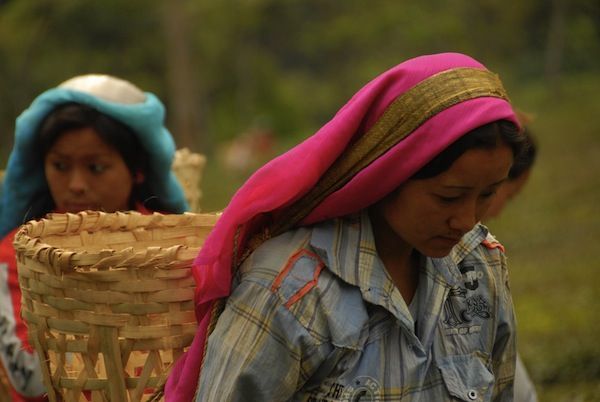
By Balu Iyer, Asia-Pacific Regional Director
We build relationships! This is the sign that greets a visitor who enters the head office of the Odisha State Cooperative Bank (OSCB) in Bhubaneswar, India. I was there at the invitation of Mr Tushar Panda, managing director of OSCB, whom I had met at a round table dialogue on enhancing the role of co-operative banks in financing social initiatives and solidarity enterprises.
Mr Panda stood out by emphasising the need to engage with members and respond to their needs. At the end of the meeting he invited me to visit his office and see their work.
The OSCB was incorporated under the Orissa Co-operative Societies Act in 1948 and has been playing a pivotal role in transforming the agrarian economy of the State. The Bank comprises 2,709 primary agricultural co-operative societies (PACS) at village level, 17 district central co-operative banks (DCCB, with 323 branches) at middle tier, and its own network of 14 branches across the state. The Bank has facilitated enrolment of 5.369m agricultural families (97.6%) out of the 5.5m agricultural families in the state. It has also been earning profit uninterrupted since 1948. Mr Panda proudly told me: “At OSCB we continue to retain the highest market share both in crop loan and aggregate agricultural credit disbursal at the level of 70% and, respectively, 52%.”
Under the leadership of Mr Panda, OSCB launched in 2010 a door-to-door campaign to cover their 5.5m members – Co-operatives at your doorstep. He said this was needed to get the employees to know whom they were really working for and to make the bank more responsive and resilient. In 2012 there was a follow-up campaign and at the same time efforts were made to convert the PACS into a one-stop shop to provide services to members. OSCB was able to engage with the Government and get PACS to procure paddy on behalf of the Odisha State Civil Supplies Corporation. This helped improve the financial strength of PACS and indirectly impacted the profitability of the CCBs.
OSCB facilitated the issue of Kisan (farmer) Credit Cards (KCC) to 4.284m farmers to provide hassle-free and timely credit to farmers. OSCB has a share of around 74% of the total KCC issued by all banks in the state as compared to all India average of only 20%. The major initiative of OSCB is the implementation of the Core Banking System (CBS) project in all the CCBs by establishing a State of the Art Data Management Centre at its headquarters connecting all 355 units. OSCB has also entered into agreement with the National Payment Corporation of India for the issue of RuPay ATM Debit Cards. In order to reach the remote tribal areas, OSCB has procured 20 mobile vans equipped with ATMs and kiosks and will be rolling out the “Bank on Wheels” to provide doorstep banking to tribal families.
While the achievements of OSCB are impressive, the challenges are many. It was nice for me to see young people in the audience at an all-staff meeting. OSCB has had severe curbs on recruitment that has impinged its growth plans and affected succession planning across all levels. The entry of commercial banks into rural areas under Prime Minister Jan Dhan Yojana could eat into the share of OSCB in dispensation of crop loans. Mr Panda was also worried about how farmers who had never used a card in their life would be able to prevent its misuse, either losing the card or sharing their pin number. The need for PACS to diversify services is another area of concern. While paddy procurement has improved balance sheets, its continuation by the state government is not guaranteed. This is a good time to build the capacity of PACS to enter into business and value added services. According to Mr S.K. Kale, chief general manager at NABARD, business development cells led by business graduates have been set up in nine out of 17 CCBs to help PACS set out a growth plan. It remains to be seen how the plans will be put into action.
In June 2013 the state government of Odisha promulgated the Odisha Self-Help Co-operatives (Repeal) Ordinance, repealing the Odisha Self-Help Co-operatives Act 2001, and brought all co-operative societies under Orissa Co-operative Act 1962. According to the Repeal Bill 2013, all 1,634 self-help co-operatives functioning in the state had to amend their bylaws and reconstitute the board of directors within three months in accordance with the 1962 Act. Mr Sethi said that the Repeal Act had helped curb the ponzi schemes that were sprouting all over the State.
While there I also had the chance of meeting Professor L. K. Vaswani from the KIIT School of Rural Management (KSRM) and Professors B.S. Misra and S. Peppin, from the Xavier Institute of Management, Bhubaneswar (XIMB, http://www.ximb.ac.in). KSRM is the second full-fledged institute in the field of rural management in India. Professor Vaswani aims to brand products from PACS and encourage a new breed of co-operative entrepreneurs. We decided to explore this area further. The Xavier School of Sustainability is the first Management School in the country to offer a Masters in Sustainability Management. The school is planning a Summit in early July to mainstream sustainability in management education and explore and celebrate sustainability leadership initiatives in various organisations.




